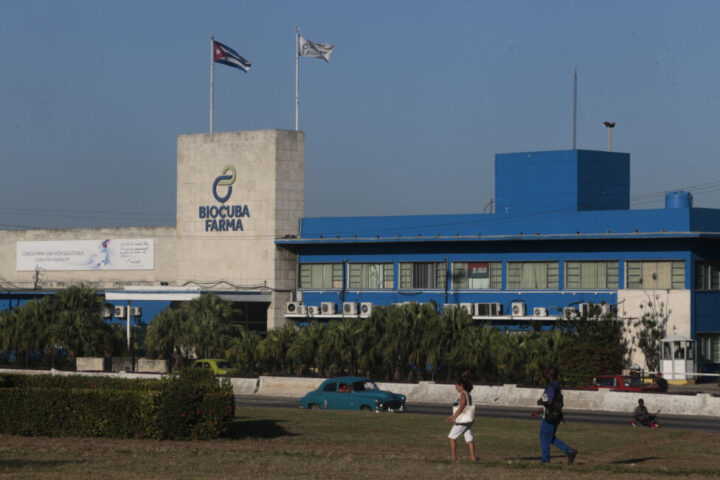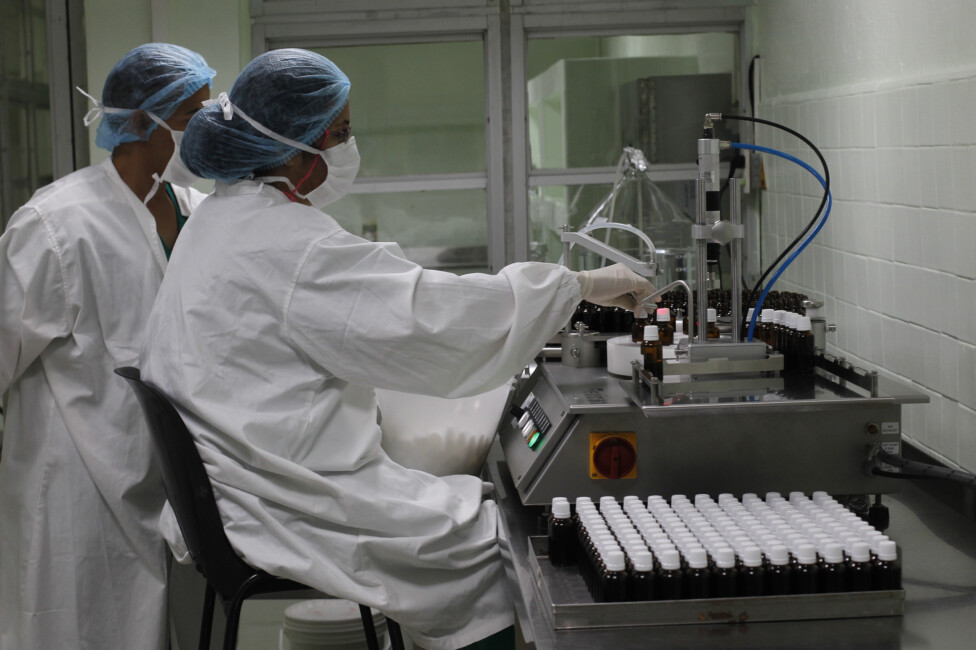HAVANA – Cuba has one of the best qualifications in the biotechnology industry to strengthen cooperation between countries in the global South in the field of science and technology and will be able to demonstrate this qualification at the G77+China Summit, which will be hosted on Friday 15th and Saturday 16th Havana.
More than 100 delegations will attend the meeting, including more than 20 delegations led by Luiz Inacio Lula da Silva of Brazil, Alberto Fernandez of Argentina, and Gustavo Petro of Colombia. , Bolivia’s Luis Arce, Iraq’s Abdullatif Rashid, Angolan Joao Lourenco and Palestinian Mahmoud Abbas.
United Nations Secretary-General Antonio Guterres, Director-General of the Food and Agriculture Organization of the United Nations (FAO) Qu Dongyu, and representatives of other international organizations will also attend.
As host, the Cuban government decided to focus the summit on the challenges of science, technology and innovation to South-South cooperation.
As a prelude to this meeting, on September 7, China and Cuba signed an agreement in Havana to jointly develop synthetic peptides with anti-cancer effects and to conduct research and clinical development of products from the joint venture Biotech Pharmaceutical.
During the 12th meeting of the Cuba-China Biotechnology Joint Working Group held in Havana on the 6th and 7th, the two sides also agreed to form two complementary joint ventures in the two countries dedicated to the development of cell therapies.
According to reports, the strategy aims to continue scientific exchanges in the fields of biomedicine, agricultural biotechnology, veterinary vaccines and stimulate new business models.
Wu Hao, Secretary-General of the National Development and Reform Commission of China, led an Asian delegation of more than 40 people, including representatives from the government and business circles.
Cuban President Miguel Díaz-Canel, during an audience with members of the group, praised the creation of United Biotechnologies, describing them as a “success” and a “strength of cooperation between the two countries” for them and “us.” people’s health”. “.
The president emphasized that “this will allow us to work together on the markets of Latin America and the Caribbean. This may be the focus of the next phase.”
After two decades of cooperation, China and Cuba have three joint ventures in the field of biotechnology, as well as laboratories and scientific research and development centers.
In early June, the two countries submitted the first patent for a pan-COVID-19 vaccine against coronavirus strains to the National Intellectual Property Office of Asian countries. The vaccine was developed at the Sino-Cuban Research, Development and Innovation Center in Yongzhou City. Hunan Province.
“We anticipate the emergence of a new pathogen that will trigger a health emergency. This type of vaccine could be the first level of containment because it is a vaccine capable of neutralizing coronaviruses in general,” Eduardo, president of state-run BioCuba Farma Eduardo Martínez said.
Founded in 2012 and headquartered in the Cuban capital, the business group brings together more than thirty companies related to biotechnology and genetic engineering research institutions, in addition to focusing on the commercialization of high-tech drugs, equipment and services.

Science, Technology and Innovation Summit
This year, China will serve as the interim chair of the G77+ China Summit, with the theme of “Current Development Challenges: The Role of Technology and Innovation.”
The group was founded in 1964 and is considered the largest alliance of southern developing countries in the United Nations. It currently consists of 134 countries, accounting for two-thirds of the world organization’s member states and 80% of the world’s population.
Among them, the draft concluding political declaration of the conference rejects technological monopolies and other unfair practices and defends the role of intellectual property rights, technology transfer, science, innovation, research and their financing.
The text calls for narrowing the scientific and technological gap between countries and promoting North-South and South-South international cooperation in order to exchange experiences and transfer technology for the benefit of developing countries.
The Cuban biotechnology industry has developed since the 1980s and has qualified human resources and well-established infrastructure, which constitute advantages for establishing cooperation agreements in the scientific field.
In addition to sovereignty, the sector provides high value-added medicines that meet part of the needs of the universal and free public health system, but whose international prices will complicate access to these medicines due to domestic financial difficulties.
The possibility of agreements with other developing countries in this area would be an opportunity for countries that face obstacles in accessing cutting-edge vaccines and medicines due to patents, unequal marketing or sanctions policies, and the United Nations proposed criticized.
Cuba is the first country in Latin America and the Caribbean to have its own vaccines (Abdala, Soberana 02 and Soberana Plus) against SARS Cov-2, the virus that causes COVID-19, and has vaccinated almost its entire population of 11 million people got the vaccine.
Although the Cuban anti-coronavirus vaccine has not yet received approval from the World Health Organization (WHO), which would open the door for its sale around the world, the Cuban anti-coronavirus vaccine has been used in Mexico, Venezuela, Nicaragua, Syria and Vietnam, or has been approved . Technology transfer, as in the case of Iran.

Innovative drugs
Cuba produces 8 of the 13 vaccines in the national immunization program.
For example, vaccines developed against meningitis B and C, Heberbiovac HB against hepatitis B and Chemi-Hib, a conjugate vaccine against Haemophilus influenzae type B, stand out, the latter two vaccines having been prequalified by the World Health Organization.
The CIMAvax-EGF therapeutic vaccine, developed by the Center for Molecular Immunology (CIM) in Havana to treat lung cancer, is already undergoing clinical trials in the United States based on a collaboration between Havana and American scientists. Cancer Institute.
In January, U.S. authorities renewed the collaboration license between the two centers until November 2027, while the Innovative Immunotherapy Alliance of Cuban-American biotech companies based in the Mariel Special Development Zone, founded in September 2018, remains active. . Located 45 kilometers west of Havana.
Clinical studies have shown that the Cuban drug Heberprot-P reduced the amputation rate in patients with advanced diabetic foot ulcers by more than 70%, making a significant contribution to the patients’ quality of life.
Another project aims to develop a preventive vaccine against the four dengue serotypes, while the Quimi-Vio heptavalent vaccine project against pneumococci is currently undergoing community intervention trials in pediatric populations in the central province of Cienfuegos.Streptococcus pneumoniae).
Research is also progressing on drugs targeting human papillomaviruses, some of which carry a high risk of cervical, throat and genital cancers in women and men.
The National Center for the Control of Medicines, Equipment and Medical Devices (Cecmed) is a level IV national regulatory agency, the Pan American Health Organization (PAHO) reference agency in the region and another qualification for the island. .
You might be right too. . . interested in:
Drug shortages a public health challenge in Cuba
Cuba advances vaccine research against dengue fever, other diseases
Cuba seeks WHO approval for its COVID-19 vaccine
Cuba is developing two vaccines to immunize its vulnerable populations
Analysts believe that the biotechnology and pharmaceutical industries could make a greater contribution to Cuba’s high-tech export portfolio to secure or recoup investments in the sector.
The currency generated by some joint ventures in the industry allows for the purchase of raw materials or generic medicines for internal supply of antibiotics, anti-anxiety drugs, anti-hypertensive drugs, diuretics, antipsychotics, antihistamines and injectables, which has significantly increased in recent years. The deficit is due to the crisis, the economic situation weighing on the country and the impact of the US embargo.
Due to its large population, the island has less internal demand for biotech products, which is why “export orientation is necessary to achieve economic survival”, Cuban economist Omar Evereny Pérez Villanueva explain.
Experts believe that the entry of biotechnology into developed countries and areas with fewer multinational companies requires a large amount of funds for competitive research and development, but Cuba lacks this resource.
“So the challenge is how to achieve its survival in the country’s conditions in the short term,” he believes.
Editor: EG

